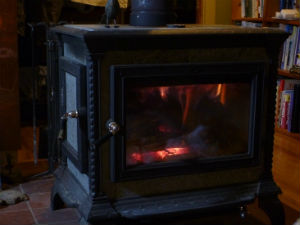outdoor wood-fired boilers
Dealer Information
If you sell or plan to sell or lease outdoor hydronic heaters, this page provides much of the information you need to know to ensure that you are complying with Section 5-204 of Vermont's Air Pollution Control Regulations (APCR). Section 5-204 of the APCR, affects outdoor hydronic heaters installed after October 1, 1997. Prior to that date outdoor hydronic heaters in Vermont were subject only to a generic regulation regarding public nuisances or odors caused by air pollution sources.
Science and Testing
The science of air pollution is very complex and technical. Below is a "Technical Primer" giving the basics to help to interpret the research and technical documents. See the links below for associated documents regarding the science and testing, many specifically dealing with outdoor hydronic heaters.
Health And Environment
While all smoke is harmful, uncertified outdoor hydronic heaters tend to generate more particulate pollution than most other wood burning devices including indoor wood stoves. The units are designed to burn wood at lower combustion temperatures and generally have shorter stacks that emit smoke at house level. Wood smoke releases fine particulates ("soot"), carbon monoxide, and other toxic pollutants.
Special Considerations for Outdoor Hydronic Heaters
Special Requirements for Outdoor Hydronic Heaters
What are Outdoor Hydronic Heaters?
Change-out Program (2011-2015)
Vermont Outdoor Wood Boiler Change-out Program (2011-2015)
Wood Heating
 Using wood to heat our homes is common practice for many Vermonters whether it be with cordwood or wood pellets. According to the Vermont Department of Forests, Parks and Recreation’s Vermont Residential Fuel Assessment: 2014-2015, 38% of Vermont households burned wood for at least some of their space heating needs.
Using wood to heat our homes is common practice for many Vermonters whether it be with cordwood or wood pellets. According to the Vermont Department of Forests, Parks and Recreation’s Vermont Residential Fuel Assessment: 2014-2015, 38% of Vermont households burned wood for at least some of their space heating needs.
Air Quality Compliance
The Air Quality Compliance Section ensures that industry, businesses, institutions, and individuals comply with air quality regulations and air pollution control permits issued by the Agency of Natural Resources. The Air Quality Compliance Section is responsible for:
